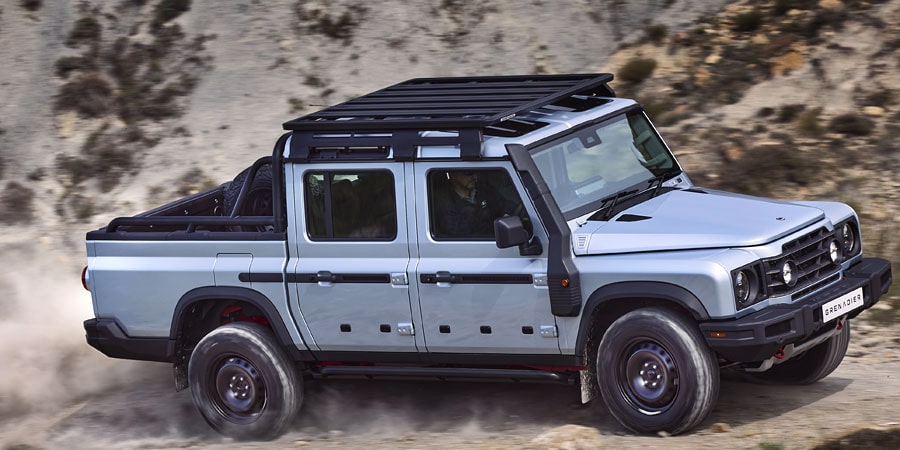In a growing chorus of automotive voices, Ineos Automotive, the manufacturer of the rugged Grenadier off-roader, has voiced its scepticism regarding an exclusive reliance on electric vehicles (EVs) for achieving carbon neutrality in the automotive sector. Lynn Calder, a representative of Ineos, recently addressed the Society of Motor Manufacturers and Traders’ (SMMT) Electrified conference, emphasizing the necessity of balancing electric, hybrid, and hydrogen technologies—a viewpoint akin to Toyota’s long-standing stance.
Calder expressed her concerns about exclusively championing EVs as the solution. “We talk about EVs all the time,” she remarked, cautioning against a singular focus on electric propulsion. “I think that is quite dangerous. I think we’re going to need a mix. I think we need a plan because, at the moment, if we just say electric vehicles are the way forward for the UK, and that’s all we are going to have, I think there is a risk we are going to fail, and a risk that it is going to be expensive.”
Currently offering both diesel and gasoline versions of the Grenadier and Grenadier Quartermaster pickup, Ineos is also in the process of developing a hydrogen fuel-cell variant of its SUV. Furthermore, the brand has plans to introduce a smaller electric off-roader in the coming years.

Despite encountering counterarguments at the conference, Calder stood by her assertion that EVs may not be the universal solution. She raised concerns about the practicality of electric vehicles in scenarios where rugged performance and accessibility are crucial, such as remote areas. “There are vehicles out there that aren’t going to be ideally suited to electric,” she explained. “Ours, we believe, is one of them, as it is going to be used in a way that will mean it is towing things, working hard; it is going to be up mountains; it is going to be in the middle of nowhere. If you really want to use it like that, electric is not a great answer based on the infrastructure around today.”
Augustin Martin, the head of Toyota UK, endorsed Calder’s perspective, underscoring the multifaceted nature of the challenge posed by carbon emissions. “If carbon is the enemy, it cannot be solved by one technology alone. Choice can never be bad,” Martin stated, aligning his views with those of Akio Toyoda, Toyota’s global CEO, who emphasised that “the enemy is carbon dioxide, not internal combustion.”
Martin also acknowledged the disparities in global EV adoption and infrastructure development, pointing out that some regions lag significantly behind Europe and the US in embracing electric mobility. “Not every region [in the world] is at the same place,” he noted.

In an industry grappling with diverse market needs and environmental targets, legislators often seek a uniform solution. However, the consensus emerging among automakers like Ineos and Toyota is that a one-size-fits-all approach is unrealistic. Different markets may require different technologies, be it hydrogen fuel cells, hydrogen combustion, electric powertrains, or synthetic fuels.
Augustin Martin concluded by commending every effort aimed at reducing carbon emissions, asserting that “every reduction is great” and represents a step toward a sustainable future. The path to carbon neutrality, it appears, is a multifaceted journey.






